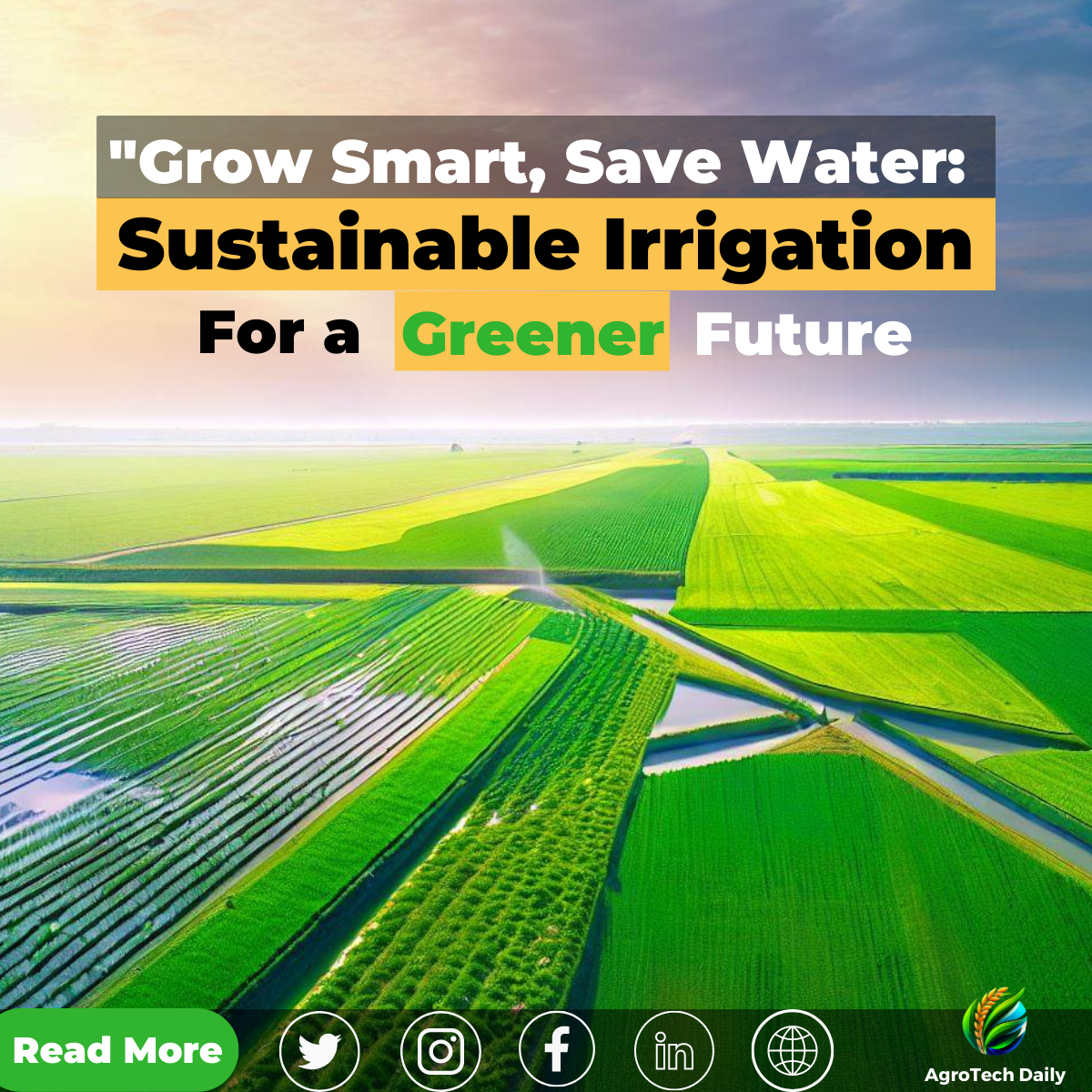Introduction:
Water scarcity is a pressing global issue, and the agricultural sector plays a vital role in conserving water resources. Sustainable irrigation practices are essential for optimizing water usage, reducing waste, and ensuring long-term agricultural productivity. In this comprehensive article, we explore the importance of irrigation water conservation and efficient utilization in simple terms. From understanding the significance of water scarcity to exploring practical techniques and technologies, we provide valuable insights for farmers and stakeholders in the agricultural industry.
1. Understanding the Importance of Irrigation Water Conservation:
Water scarcity affects our ability to produce enough food and sustain our ecosystems. We explain why it's crucial to conserve water in agriculture and how it impacts our environment, economy, and communities. By recognizing the significance of this challenge, we can work towards sustainable solutions.
2. Efficient Irrigation Techniques for Water Conservation:
We discuss practical irrigation techniques that help save water. Drip irrigation, micro-irrigation, and precision sprinklers deliver water directly to plant roots, minimizing evaporation and runoff. We also highlight the use of smart irrigation controllers and sensors, which help optimize watering schedules and prevent water waste.
3. Implementing Water Management Strategies:
Effective water management is key to maximizing irrigation efficiency. We explore simple strategies such as using soil moisture sensors and monitoring tools to ensure plants receive the right amount of water. We also discuss the benefits of mulching, cover cropping, and conservation tillage, which help retain soil moisture and reduce water loss.
4. Adoption of Precision Agriculture Technologies:
We introduce precision agriculture technologies that help farmers make smarter irrigation decisions. Remote sensing and satellite imagery assist in monitoring crop water needs, while data analytics enable informed choices. Variable rate irrigation and site-specific irrigation management further optimize water distribution.
5. Integrated Water Resources Management:
Sustainable irrigation involves a holistic approach to water management. We explain the importance of considering the entire water cycle and utilizing various water sources. Rainwater harvesting, water reuse, and water-efficient irrigation systems are simple practices that enhance water availability and reduce reliance on freshwater.
6. Benefits of Sustainable Irrigation Practices:
We outline the benefits farmers can expect by adopting sustainable irrigation practices. These practices improve water efficiency, reduce consumption, save costs, and minimize environmental impacts. By embracing sustainable irrigation, we ensure the availability of water for future generations while sustaining agricultural productivity.
Conclusion:
Sustainable irrigation practices are crucial for addressing water scarcity and building a resilient agricultural sector. By conserving water and maximizing efficiency, we can minimize the impact of agriculture on water resources and create a more sustainable future. Let us embrace practical techniques, implement effective water management strategies, and work together to achieve a balance between agricultural productivity and water conservation.
Keywords: Sustainable Irrigation, Water Conservation, Efficient Utilization, Water Management, Precision Agriculture, Water Scarcity, Crop Productivity, Environmental Sustainability.









